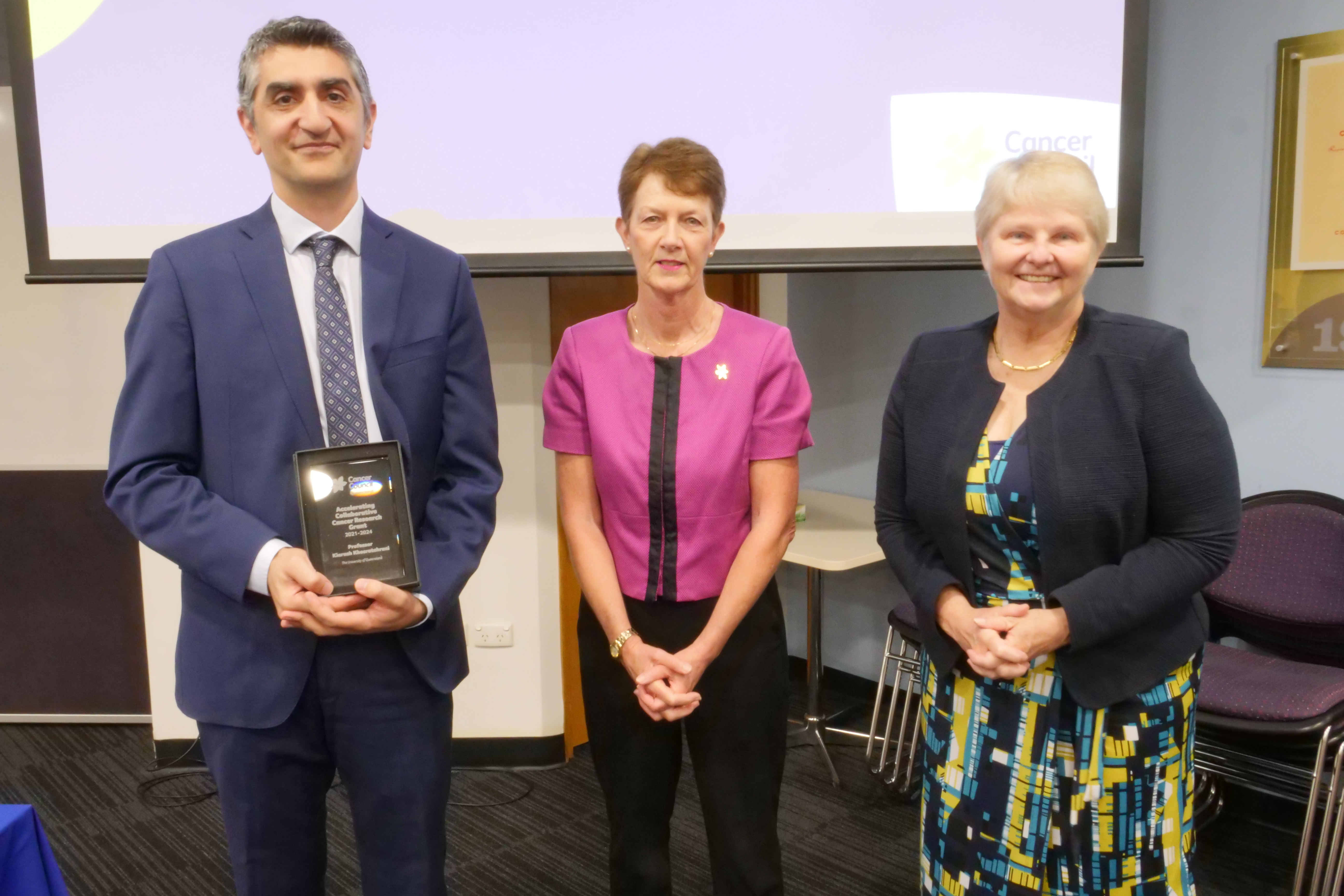Cancer Council is internationally renowned for innovative work in cancer research, prevention and support. Our mission is to prevent cancer, empower patients through providing information and support, and save lives.
As an independent, not-for-profit organisation, we rely on the generosity of our supporters to continue our important work. So we understand how important it is for you to know how your donations help.
With your help, here's what we achieved last year.

Over
2,000,000
little Aussies protected
across the country from harmful UV rays through our SunSmart school program, reducing their risk of cancer in the future.

Almost
$54.2 M
invested in research
across Australia, making us the largest non-government funder of research in the country.

Our services were used almost
150,000
times
by Australians affected by cancer. We provide vital support when they need it most to help make every stage of their cancer journey easier.
Some Longest Day Funding Highlights
Improve Your Long Game Program
Cancer Council NSW's Improve your long game is a free sun protection program, targeting male golfers aged 40+ in NSW golf clubs. It aims to improve sun protection behaviours of golfers by providing free sunscreen at the 1st and 10th tee, information and resources to help reduce skin cancer risk.
The program started as a small pilot in 12 golf clubs on the north coast of NSW in 2015 and has since grown to over 200 golf clubs participating across the state, protecting more golfers from harmful UV radiation exposure. This growth would not have been possible without supporters like those that participated in The Longest Day and Golf NSW.

$500,000 Research Grant Targeting Melanoma
Cancer Council Queensland has awarded a new round of funding for vital research through its ACCR grant scheme to Professor Kiarash Khosrotehrani’s team of researchers from the University of Queensland.
Thanks in part to YOU the amazing supporters and participants of The Longest Day, they will receive an annual sum of $500,000 for the next four years to fund their life-saving research.
“Our team have extensive experience in the clinical care of melanoma patients, as well as expertise in a wide range of technologies with a proven track record of accomplishment in the prediction of melanoma survival. We plan to use this knowledge and these skills to identify new ways of recognising and treating potentially fatal melanomas as early as possible,” says Professor Khosrotehrani.
Your continued support is helping Cancer Council ensure research projects like Professor Khosrotehrani’s, receive the ongoing funding they need to save lives. You can read more about this project here.
SunSmart’s Dermoscopy Training and Devices
Funds raised through The Longest Day enabled Cancer Council Victoria to provide dermoscopy training and devices for Victorian GP’s to better detect skin cancer earlier and more reliably.
76 dermatoscopes – handheld skin microscopes – were provided to GPs for the early detection of skin cancer, particularly in regional areas where there is a lack of dermatologists. With these dermatoscopes and proper training, these doctors have been able to find melanomas at an earlier stage and with fewer excisions, which means more lives can be saved without invasive treatments or hospital visits.
One of the doctors that was able to undertake the training is Dr Helen Dyett, a GP down on the coast of Victoria who runs a skin clinic every week at her practice. She says 'The training has... led to so many early diagnoses of skin cancers and therefore reduced mortality and morbidity.' You can read more about this in her Q&A here.

12 World-Class Cancer Research Projects Funded
Thanks to the support from the community, Cancer Council NSW has awarded funding to 12 world-class cancer research projects! These eminent and emerging cancer researchers from across Australia are leading the charge towards a cancer free future by investigating new ways to diagnose and treat the disease.
Funding is awarded through an independent process with projects assessed on their scientific merit and potential impact for the community.
One of these projects is Finding new treatment targets for advanced melanoma at The University of Queensland by Professor Gabrielle Belz and her team. You can read more about this innovative project as well as the others here.







